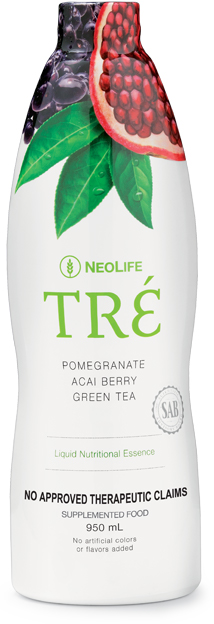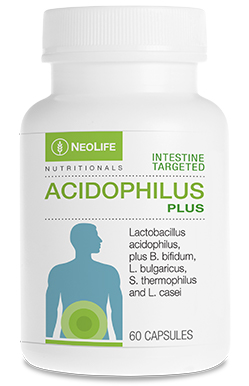Written by Dr. Masís
In a previous blog about probiotics, we discussed the top things you need to do about these special microbes (or tiny forms of life such as bacteria, viruses and fungi) that thrive in different parts of your body, particularly in your gut! To recap, probiotics are microbes that help support your intestinal microbial ecosystem and balance.1 So now that you know a little bit more about probiotics, you have no doubt also become aware of the term prebiotic and are probably thinking—yes there’s more to know than just probiotics! Prebiotics do differ from probiotics in many ways. Think of prebiotics as a fuel source for the beneficial bacteria in your gut.
What are prebiotics?
Prebiotics were first defined in 1995 as ingredients that cannot be digested but can beneficially affect you by stimulating the growth and/or the activity of one or more of the bacteria in the colon, helping to improve your health.2,3 This definition has been updated to also include the idea that a prebiotic is a substance that is selectively utilised by the microbes in a person’s gut which deliver a health benefit.2 More simply, these prebiotics can selectively stimulate the growth and/or activity of intestinal bacteria associated with health and well-being.3 The focus in this definition is that the prebiotics that you consume provide benefits to health-promoting bacteria, not the bad bacteria.2 Health benefits of prebiotics emerging from human studies include improvement of immune function, constipation relief, skin health, satiety, absorption of calcium and other minerals and metabolic health.2
Where can I find prebiotics?
To clarify, vitamins, antibiotics, minerals and bacteriophages are NOT considered prebiotics, even if they may alter the composition of the microbes in your gut.2 Most likely you have heard of fibres being called prebiotics, such as fructans (found in foods like bananas and onions) and galactans (found in foods like beans and lentils) but it is important to note that not all fibres can be labelled as prebiotic according to the current definition.2 Some fibres that are considered prebiotic include wheat dextrin, psyllium, inulin (from chicory), pectin (in fruits) and beta-glucans (in foods such as oats and barley).3,4 Prebiotics can be found in other foods such as leeks, asparagus, garlic, wheat and soybeans.4 Some prebiotics such as inulin can create gastrointestinal disturbances whereas others, such as wheat dextrin and polydextrose are more tolerated.4 An exciting new area of prebiotic science is the identification of many plant polyphenols with prebiotic-like qualities.2,5 About 90 to 95% of these polyphenols are not absorbed in the small intestine and can reach the colon.2 Once they reach the colon, they can be utilised by microbes in the colon that transform the polyphenols into substances that may impart health benefits.2,6 More research is needed to display the true effects of polyphenols to also categorise them intentionally as “prebiotics.”
It is important to note that a varied diet with many whole food components will naturally contain a diverse range of prebiotic substances. In turn, this will encourage the growth of a wide diversity of bacteria, but it’s also important to have the type of bacteria in the system that can use the prebiotic.3 Even if you are consuming prebiotics, the right beneficial bacteria must be present in your gut to be able to use this fuel source—and that’s where supplemental probiotics and probiotic foods come into the picture to help support your gut. Other factors to consider which may ultimately affect how you utilise both prebiotics and probiotics are your genetics and your stage in life, as well as the different foods you consume.3 Furthermore, adverse events such as an illness or the use of antibiotics can eliminate both the good and bad bacteria from your system.1 In this situation, both prebiotics and probiotics may be helpful in maintaining good health to your gut and to your body. And a healthy gut environment influences immune health which in turn influences many aspects of our overall health.
NeoLife Product Spotlight:
 Ingredients such as oats, soy and psyllium seed in NeoLife All Natural Fibre Food & Drink Mix may help with providing prebiotic-effects.ꝉ The NeoLife All Natural Fibre Food & Drink Mix contains a total of 6 grams of fibre in a 21 gram serving of the drink mix from 12 whole food sources such as oats, fruits and vegetables. The proprietary Neo-Polyfibe blend features soy and whole oat fibre, along with acerola cherry fibre, that may help reduce cholesterol absorption without making you lose any additional nutrients that some other types of fibre products often can.*
Ingredients such as oats, soy and psyllium seed in NeoLife All Natural Fibre Food & Drink Mix may help with providing prebiotic-effects.ꝉ The NeoLife All Natural Fibre Food & Drink Mix contains a total of 6 grams of fibre in a 21 gram serving of the drink mix from 12 whole food sources such as oats, fruits and vegetables. The proprietary Neo-Polyfibe blend features soy and whole oat fibre, along with acerola cherry fibre, that may help reduce cholesterol absorption without making you lose any additional nutrients that some other types of fibre products often can.*
 Dietary polyphenols may also provide prebiotic-like effects and NeoLife products contain these in abundance. NeoLife Tré offers polyphenols from pomegranate, acai berry, green tea along with a unique and Proprietary Inflox Berry Blend to provide a wide range of powerful antioxidants.*ꝉ NeoLife Flavonoid Complex delivers a blend of flavonoids derived from cranberries, kale, green tea, beets, mixed berries, red and black grapes, oranges, lemons and grapefruit.
Dietary polyphenols may also provide prebiotic-like effects and NeoLife products contain these in abundance. NeoLife Tré offers polyphenols from pomegranate, acai berry, green tea along with a unique and Proprietary Inflox Berry Blend to provide a wide range of powerful antioxidants.*ꝉ NeoLife Flavonoid Complex delivers a blend of flavonoids derived from cranberries, kale, green tea, beets, mixed berries, red and black grapes, oranges, lemons and grapefruit.
 NeoLife Acidophilus Plus may help re-balance the population of intestinal bacteria in favour of the “good guys” helping reduce the growth of bad microbes.* Acidophilus Plus delivers five well-characterised strains of beneficial, lactic acid-producing bacteria (Lactobacillus acidophilus, Lactobacillus bulgaricus, Lactobacillus casei, Bifidobacterium bifidum and Streptococcus thermophilus) directly to the intestines to help support a healthy balance of “good” bacteria.* NeoLife’s exclusive Gel-Gard Enteric Delivery System guarantees that the beneficial bacteria are delivered directly to the intestines.* Gel-Gard Protection is a technology that involves wrapping the bacteria in a gel-forming polysaccharide [carbohydrate]. Beneficial bacteria help produce vitamins, support normal digestive functions and help to promote a healthy immune system.*ꝉ
NeoLife Acidophilus Plus may help re-balance the population of intestinal bacteria in favour of the “good guys” helping reduce the growth of bad microbes.* Acidophilus Plus delivers five well-characterised strains of beneficial, lactic acid-producing bacteria (Lactobacillus acidophilus, Lactobacillus bulgaricus, Lactobacillus casei, Bifidobacterium bifidum and Streptococcus thermophilus) directly to the intestines to help support a healthy balance of “good” bacteria.* NeoLife’s exclusive Gel-Gard Enteric Delivery System guarantees that the beneficial bacteria are delivered directly to the intestines.* Gel-Gard Protection is a technology that involves wrapping the bacteria in a gel-forming polysaccharide [carbohydrate]. Beneficial bacteria help produce vitamins, support normal digestive functions and help to promote a healthy immune system.*ꝉ
 Written by:
Written by:
Natalie Masís, PhD, RDN | Research Manager
Dr. Masís is a registered dietitian nutritionist and earned her doctorate in Nutritional Sciences from the University of Illinois at Urbana-Champaign, a Master of Science in Nutritional Sciences from Texas Tech University, and both a Bachelor of Science in Nutritional Sciences and in Food Science from Cornell University.
References:
- Sanders ME. Probiotics: definition, sources, selection, and uses. Clin Infect Dis. 2008;46(Supplement_2):S58-S61. doi:10.1086/523341
- Gibson GR, Hutkins R, Sanders ME, et al. Expert consensus document: The International Scientific Association for Probiotics and Prebiotics (ISAPP) consensus statement on the definition and scope of prebiotics. Nat Rev Gastroenterol Hepatol. 2017;14(8):491-502. doi:10.1038/nrgastro.2017.75
- Holscher HD. Dietary fiber and prebiotics and the gastrointestinal microbiota. Gut Microbes. 2017;8(2):172-184. doi:10.1080/19490976.2017.1290756
- Slavin J. Fiber and prebiotics: mechanisms and health benefits. Nutrients. 2013;5(4):1417-1435. doi:10.3390/nu5041417
- Duda-Chodak A, Tarko T, Satora P, Sroka P. Interaction of dietary compounds, especially polyphenols, with the intestinal microbiota: a review. Eur J Nutr. 2015;54(3):325-341. doi:10.1007/s00394-015-0852-y
- Cardona F, Andrés-Lacueva C, Tulipani S, Tinahones FJ, Queipo-Ortuño MI. Benefits of polyphenols on gut microbiota and implications in human health. J Nutr Biochem. 2013;24(8):1415-1422. doi:10.1016/j.jnutbio.2013.05.001
* Always read the label. Use only as directed. These products are not intended to diagnose, treat, cure or prevent any disease.
†No clinical testing has been conducted to assess the efficacy of the products to present prebiotic effects.
CLUB MEMBER
Join our wellness community as a Club Member and save 15-25% off all your orders!
Membership Perks
- Free to Join
- Shop Exclusive Products
- Save 15-25% Off Suggested Retail
- Nutrition & Personal Development
- Free Personal Website to Share Savings with Friends
- Earn Free Products when you Refer Friends
- Weight Loss & Fitness Challenges
- Supportive Wellness Community
PROMOTER
Join as a Promoter, let us pay you for sharing NeoLife and help us End the Trend of poor wellness and poverty!
Promoter Perks
All the perks of Club Membership PLUS…
- Own a Nutrition Startup Business (like a franchise but only a fraction of the startup cost)
- Money back rebates on orders… the more you buy & share the more you make
- Spare-time, part-time or full-time income
- Exciting Incentives like Cash and Travel
- Business retreats, leadership training & personal development
- Performance-based Recognition
- Fun Events & Supportive Wellness Community
